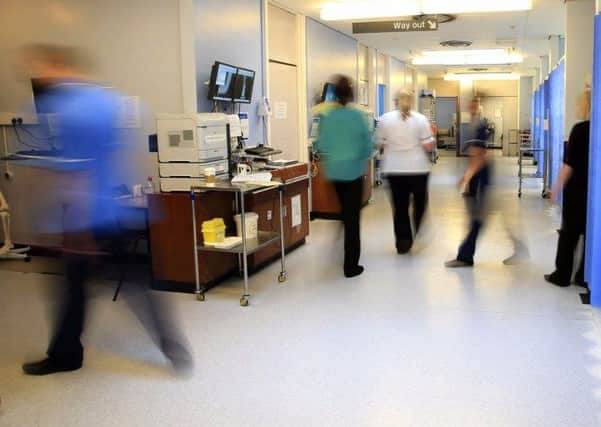NHS IN CRISIS: Don't get ill or head online to save NHS millions say health bosses


However, campaigners are warning of the dangers of the tech revolution and say patients will suffer if health bosses try to replace them with apps.
A leading GP believes the health service is gambling millions on plans to use apps, benevolent Big Brother-style monitoring devices and video-link surgeries to bridge a five-year funding gap.
Advertisement
Hide AdAdvertisement
Hide AdHealth bosses around the UK are drawing up plans to shake up the patient-doctor relationship by limiting “face-to-face” interactions, both in the NHS and in drastically under-funded council-run social care.


An investigation by The i and sister Johnston Press titles has found all 44 Sustainability Transformation Plans (STP), produced by regional NHS bodies, plan to meet strict five-year savings targets by increasing the use of new digital technologies to deliver health services.
Regions are proposing to increase “virtual appointments,” where patients can talk to their GP, or take part in a group therapy session via video-call.
“Artificial intelligence” apps are already starting to deliver diagnoses on the private market and are already being discussed by Clinical Commissioning Groups (CCGs) looking to assess patients without the need for a face-to-face meeting.
Advertisement
Hide AdAdvertisement
Hide AdBut leading GPs are not convinced the move is the magic formula in helping the NHS meet its £22 billion shortfall.


Helen Stokes-Lampard, chairman of the Royal College of GPs, believes video-link doctors’ appointments could actually increase their workloads.
She said: “While these might be convenient, they don’t actually reduce a GP’s workload as a 10-minute patient consultation takes 10 minutes whether face-to face-or over the phone - and in some cases virtual consultations can increase workload, if a follow up face-to-face consultation is necessary.”
Mrs Stokes-Lampard says she broadly supports the idea of increasing technology in the NHS, but she fears it could alienate patients who are not “tech savvy.”
Advertisement
Hide AdAdvertisement
Hide AdShe said: “Whatever happens, the GP-patient relationship is unique in medicine and there is no app, algorithm or technological innovation that can, or will, replace it in the foreseeable future.”


All 44 STPs are seeking to drastically reduce accident and emergency admissions, scheduled visits and “face-to-face” care in part, by moving towards a model of what has been labelled “self care.”
Vice-president at the Royal College of Emergency Medicine, Chris Moulton, believes types of preventive treatment are “absolutely the morally and medically correct thing to do.”
But he warned they should not be used as a way of saving the NHS money.
Advertisement
Hide AdAdvertisement
Hide AdHe said: “When a 60-year-old person takes statins and other drugs to avoid having a heart attack, they don’t sign a pledge saying that they will never use the health service again for the next two decades.


“Using lifestyle changes and medical interventions to prolong happy lives is the right thing to do. But it is not the answer to the financial crisis facing the NHS.”
In adult social care the STPs talk of plans to increase “telecare,” where elderly or disabled people can be monitored by devices in their own home.
FLAWED
One union leader fears the ploy, which campaigners fear is a move for cash-strapped councils to reduce home visits, is flawed.
Advertisement
Hide AdAdvertisement
Hide AdGuy Collis, health policy officer at Unison, said new technology would require staff to undergo extensive, costly raining, before it is rolled out.